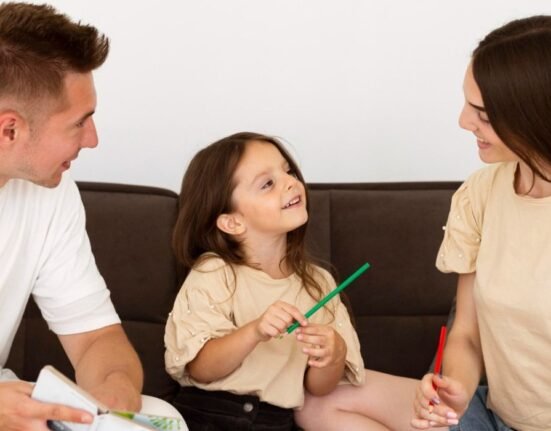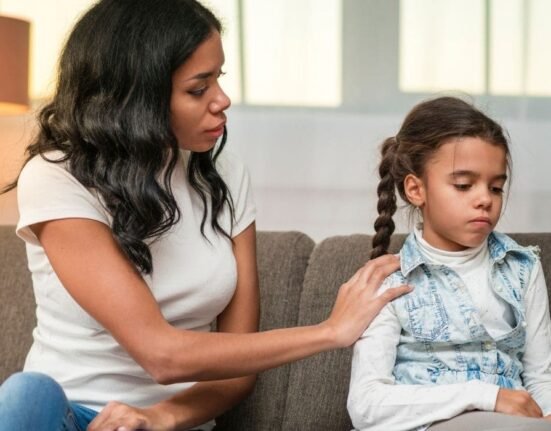At the end of the day, the most overwhelming key to a child’s success is the positive involvement of parents
Jane D. Hull
Human beings go through many developmental processes in their lifetime, with parenting being one of the most important one. It is imperative to understand that parenting is an ongoing learning process and one needs to put in deliberate efforts towards doing it right.
As the quote says – “Don’t worry that children never listen to you; worry that they are always watching you.” Parenting starts influencing the child from the moment the child starts observing. The central principle of modelling as proposed by Albert Bandura is that behaviour is learned from the environment through the process of observational learning. Family being a child’s first social environment, chances are that the child is affected the most by its family members; parents being the role models! Children observe and learn from their environment. Thus, as an informed parent, it is essential to be conscious about how to behave with young ones at home.
According to American Psychological Association (APA), parenting practices around the world share three major goals:
- Ensuring children’s health and safety,
- Preparing children for life as productive adults,
- Transmitting cultural values.
Parenting involves taking care of basic needs of the child like food, clothing, education and health. Apart from this, parenting also involves giving warmth, care, love and support in every way possible, including providing them with right guidance and exercising control wherever necessary.

Various factors like socioeconomic demographics, personality of the parents, educational qualification of the parents, family environment and parenting style may affect parenting. For instance, according to researchers, children from lower Socioeconomic Status and communities showed delayed development of academic skills than children from higher SES groups.
It was further reported that low SES in childhood was related to poor cognitive development, language, memory, socioemotional processing, and consequently poor income and health in adulthood (Morgan, Farkas, Hillemeier, & Maczuga, 2009).Dauber and Epstein (1993) and Janosz (1994) suggested that the environment which is provided by parents and family members influence children’s academic achievement. According to another finding, both, parent personality and the quality of parenting behaviours seemed to play an important role in personality development during adolescence (Schofield, T.J., et al., 2012).
Parenting ‘style’ is another important factor. It refers to the variation in the ways that different people raise their children.
The work of Diane Baumrind in the 1960s created one commonly-referenced categorization of parenting styles, which includes four distinct parenting styles: Authoritarian or Disciplinarian, Permissive or Indulgent, Uninvolved, Authoritative. Authoritative parenting was found to be most effective in bringing out academic excellence in children. The quality of parent-child relationship is critical fo r healthy development of the child. If a child witnesses a healthy relationship between parents at home and feels that the parents are more responsive towards his/her needs, the emotional well- being of the child is enhanced. How many of us give our children a chance to speak freely and discuss sensitive issues like menstruation/puberty/sex? By not doing so, we are pushing them to search for inappropriate sources of information.
Gender differences in parenting is extremely evident when parents have distinct expectations from their son and daughter, which results in limiting their potentials as individuals.
Men are encouraged to restrict themselves from expressing their emotions and expected to be more aggressive, while women are pushed to be caring and less aggressive.
It has been found that inadequate parenting is related to problems including childhood illness and accidents, teenage pregnancy, substance misuse, juvenile crime, mental illness, truancy and school underachievement (Hoghughi & Speight, 1998).

With the changing scenario in our country, we are moving from a collectivistic culture towards an individualistic culture, from a system of joint families we are now becoming nuclear families. In earlier times, children used to listen to stories, play outdoor games, and share their feelings with their grandparents. Today, they spend time alone, playing video games and watching their favourite TV series. This transition from joint to nuclear families has had a significant effect on the upbringing of our children.
Hence, it becomes imperative to become good parents and undertake the responsibility of parenthood seriously. As parents, be ready to take the roller coaster ride and have shared responsibilities.
Things which every parent should do:
- Appreciate them and give them rewards
- Avoid expressing negative emotions and behaviours like anger, use of abusive language, arguments or fights
- Never compare them with others
- Hug them, tell bedtime stories and kiss them good night
- Monitor their screen time
- Listen to them
- Spend time with them
- Solve their queries
- Try to maintain a healthy communication in the family
Most importantly, love your children! Parenting is a 24*7 job which involves taking your kid through the journey of life and helping them find their meaning of life.
There is no such thing as a perfect parent. So just be a real one.
Sue Atkins
—













Leave feedback about this